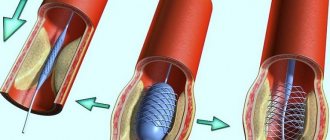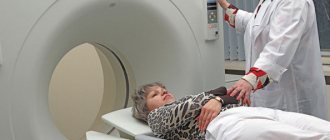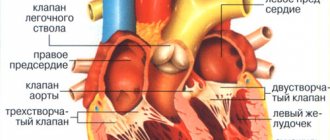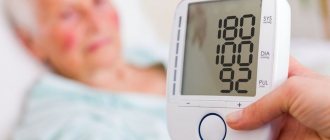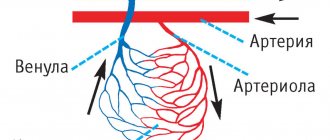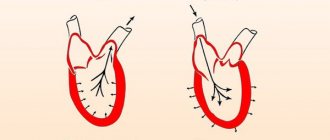Tremors in the body and palpitations occur in a person for a reason. In this case, there are many options, but one thing is clear - the body is already tired, both physically and mentally, and the nervous system is simply “at the limit.”
It happens that everything seems to be fine, but then a sharp trembling begins inside the body, rapid heartbeat, and poor health. And this is regardless of the weather, the temperature in the house, body temperature - everything happens suddenly.
This feeling of internal tremor is not so scary, and not so worrying, but this is the first “bell” of the body - something is wrong. During this state, you want to quickly take cover and warm up, but everything is useless, you are still freezing, and your pulse is about to jump out.
What is the reason for this condition?
Causes of palpitations and trembling
These manifestations are one of the common reasons why patients see a cardiologist, therapist, neurologist, or endocrinologist.
What could it be?
This condition is fueled by periodic loss of pulse, too fast heart rate, weakness, and goosebumps.
Factors influencing this manifestation are different and are not always related to the work of the heart muscle:
- Cardiac conduction disorder
- Secondary myocardial contractions,
- Development of arrhythmia,
- Heart disease,
- Heart attack, etc.
But there are also a large number of reasons not related to the functioning of the heart:
- Incorrect functioning of the gastrointestinal tract. And since the organs are directly related to the heart muscle, frequent pulsation is also closely related to this.
- When the vagus nerve appears, a certain disruption occurs in the functioning of digestion, which gives a signal of disturbances. It is precisely this symptom that can cause minor trembling. Patients may also feel a little nervous during a gastroscopy.
- Shaking in the body is often provoked by an incorrect approach to any of the therapies, when medication is taken uncontrollably.
- When a large amount of nicotine enters the body, frequent pulsation and trembling in the arms and legs occur.
- With the development of diseases associated with the endocrine system, these deviations from the normal functioning of the heart can also be observed. This is due to incomplete production of Thyroxin, TRIIODOTHYRONINE.
- Alcohol, like no other, can cause a person’s internal tremors.
- Rheochromocytoma is the name of an oncological process in the adrenal glands, the symptoms of which are a strong heartbeat.
- With constant abuse of drinks with large amounts of caffeine, internal shaking in the body and headaches appear.
- As for the female gender, this kind of symptoms can appear after the onset of menopause.
- During surges in body temperature: ARVI, bronchitis, inflammatory processes, tremors are also observed in the heart area, which is directly related to the feverish state of the patient.
When it comes to problems with the endocrine system, it should be noted that trembling occurs only in the morning, and towards lunch everything returns to normal.
Types of tremor
Neurologists classify shaking hands according to the types of occurrence:
- Physiological tremor. It is not uncommon for hands to begin to shake due to nervous tension, stress or muscle strain.
- Anxiety disorders. With a neurological cause of tremor, other problems come with it: insomnia, nausea, nervousness, increased fatigue. As you might have guessed, the cause can be severe stress.
- Thyroid gland dysfunction. Tremor can be one of the symptoms of thyrotoxicosis. Other signs indicating this disease are weakness, causeless anxiety, rapid heartbeat, shortness of breath, and sleep disturbances.
- Essential tremor. In this case, the hands shake in a certain position. Most often, this tremor is inherited and does not have serious consequences.
- Parkinson's disease. This is a very serious disease that is common in older people. With it, the patient's hands shake during calmness. Parkinson's has a number of associated symptoms: loss of balance, deterioration of coordination, development of memory loss, amnesia and others.
Pathologies causing symptoms
When a person shakes inside the body, this is primarily an indicator that there is a violation of thermoregulation. And this is the first sign of problems with the endocrine system (Graves disease, diffuse goiter), as well as various types of fever.
During an injection for diabetes mellitus, slight trembling of the body may also occur.
A strong heart rhythm may also indicate that there was severe blood loss, anaphylactic or painful shock, collapse, anemia, hypoxia.
Prevention of hand tremors
Simple, but extremely effective recommendations will help avoid the development of the disease and generally have a positive effect on the condition of your body:
- Start playing sports, walking outside and any other type of muscle activity;
- Find time every day to rest and relax;
- Practice fine motor skills with your finger, take up crafts or a similar hobby;
All of the above tips do not exclude visiting the dentist and identifying the cause of shaking hands. For this disease, we strongly recommend visiting a specialist to rule out or detect serious diseases.
First aid
At the first manifestations of severe trembling, rapid heartbeat, weakness, you should immediately stop any exercise and go out into the fresh air (if you are in a stuffy room).
If you are asked for help in this condition, then the first stage should be to put the person with his back on a flat surface (floor, table), and give as much opportunity as possible to breathe in fresh air: open the window, unbutton his shirt, take off his tie. If you observe a person’s face becoming paler, then you should raise your legs a little higher than your body, as these are the first signs of fainting or stroke.
If a person is shaking from heart disease, then first of all you need to give Valerian and Motherwort.
Reasons to visit a doctor soon
The help of specialists will be required immediately in the following cases:
- If this state of the body has returned to normal (pulse jumps, frequent trembling, dizziness) - the causes of ischemic heart disease, arrhythmia, WPW syndrome.
- Severe pain in the chest, constant fear of death.
- Frequent general trembling after injections for diabetes mellitus.
- At temperatures above 38.2 °C.
- Blood pressure is above 130/70 mm. rt. Art.
- Frequent muscle pain, shaking hands.
Remember! These symptoms require immediate medical attention!
Symptoms
Panic attacks occur during the deep sleep phase - between 2 and 4 am. In rare cases, this condition occurs immediately after falling asleep.
Symptoms of panic attacks during sleep include the following:
- sudden sudden awakening from a feeling of anxiety and intense fear;
- lack of air;
- difficult intermittent breathing;
- increased sweating;
- tachycardia;
- increased blood pressure;
- feeling of paralysis or stiffness of the body;
- dizziness;
- chest pain;
- chills, numbness of extremities.
In time, a night attack lasts from 10-20 minutes. Due to paralyzing horror, a person is unable to call for help. Sometimes awakening occurs from one's own scream. The darkness in which a person finds himself only aggravates his condition. Therefore, panic attacks at night during sleep have more severe symptoms than during daytime attacks.
In the first 5-10 minutes after a sudden awakening, confusion and disorientation in space occurs. Then comes awareness of the situation. The person is trying to calm down his pulse and calm down. Feelings of anxiety and fear may persist for several days, intensifying in the evening. This is due to the fear of falling asleep and again falling into an overwhelming nightmare.
A panic attack during sleep also has intrusive thoughts (so-called obsessions). There is a fear of serious illness, death, heart attack in a dream. Without appropriate treatment, attacks may become more frequent and occur every night.
What is the diagnosis?
At the first manifestation of the above symptoms, you should first contact a therapist, after which you will be referred to the required specialist. Since different symptoms require referral to different doctors:
- With neurosis, trembling in the body and rapid heartbeat are different from other diseases - neurologist,
- Chills with VSD are a completely different picture, you will be referred to a cardiologist,
- Problems with the thyroid gland (other symptoms, there may be discomfort at the site of goiter formation) - endocrinologist, etc.
The main stage in the diagnostic process is taking tests (urine, blood), after which secondary types of examination of the heart muscle and vascular system follow:
- Electrocardiography (ECG),
- Ultrasound examinations (ultrasound),
- rheoencephalography (REG),
A brain examination may also be prescribed:
- echoencephalography (EchoEG),
- Electroencephalography (EEG),
- magnetic resonance imaging (MRI).
When investigating the causes of problems with the endocrine system, you should take tests for blood sugar levels, the level of insulin in the blood, and hormonal levels.
If there is a suspicion of heart disease, a study in the form of a CMS, an ECG recording per day, is used.
With a normal level of iodized and adrenal derivatives, with normal insulin and no untimely intake of antibiotics into the body, it allows you to immediately remove problems with the thyroid gland from the list.
Treatment for vegetative-vascular dystonia
During the development of vegetative-vascular dystonia in a person, treatment can be significantly inexpensive and not complicated:
- tea, tinctures, herbal decoctions (chamomile, calendula, ginseng, lemongrass, lure, immortelle leaves, valerian, etc.). These types of herbs will help normalize the nervous system, and a person will be able to normalize sleep at night,
- sedatives to improve heart function, as well as to relieve severe chills,
- preventive conversations with psychologists, neurologists,
- getting rid of life stress, tension, anxiety, depression (you can take a vacation, take salt baths, inhale the pores of beneficial herbs).
Something to remember! Any of the above methods must be agreed upon with a cardiologist and therapist, and in case of progression, placement in hospital treatment is possible
.
How to get rid of hand tremors
Depending on the type of tremor, there are various treatment methods; below are general tips for getting rid of this ailment:
- Reduce your stress levels. Make a plan to avoid conflict situations and not fall out of balance. Try to master breathing techniques, meditation, and if necessary, consult a psychotherapist.
- Start taking sedatives. You should not select strong medications on your own; only a specialist can prescribe them. Consider plant-based sedatives.
- Try to drink less coffee and energy drinks, they seriously weaken the nervous system.
- A stable daily routine and normal sleep patterns help normalize the condition.
- Give up bad habits such as alcohol and smoking.
- During an attack of tremor, pick up something heavy, unless there is a physical reason for the occurrence.
- If you are undergoing treatment, check with your specialist about any side effects that may cause tremors.
- Do not self-medicate.



